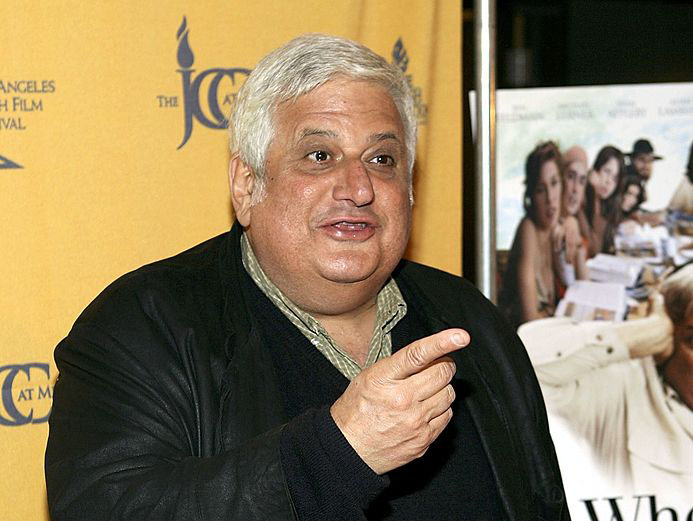The botched assassination attempt on a Hamas official in Amman onSept. 25 has turned into a security, as well as a diplomatic,disaster for Israel. Commentators are calling for the resignations ofboth Prime Minister Binyamin Netanyahu and chief of the Mossadexternal security service, Gen. Danny Yatom.
Ze’ev Schiff, the dean of Israeli defense writers, branded theattack on Khaled Meshal, the head of the Palestinian fundamentalists’political bureau in Jordan, “one of the worst operational failures inthe history of Israel’s intelligence services.” It had, he contendedin the heavyweight Ha’aretz, “caused the country serious strategicdamage.”
Another veteran military analyst, Ya’acov Erez, in the tabloidMa’ariv, called for a commission under a Supreme Court judge toinvestigate “not only the debacle itself but the calculations bywhich Jordan was selected as an arena of activity.”
After a Cabinet meeting on Sunday, Cabinet Secretary Danny Navehaccused the local media of “irresponsible attacks on the primeminister, which derive, in large part, from unacceptable partisanpolitical motives.” Yet Schiff and Erez are no knee-jerk leftists,hell-bent on bringing down the elected government at any price.
Nor is Yitzhak Shamir, Netanyahu’s predecessor as Likud leader,who said that he had long ceased to be surprised by anything theprime minister did. The Amman mission, added Shamir, himself a formersenior Mossad operative, had complicated relations with both Jordanand Canada (the assassins were carrying forged Canadian passports).”I can only see that trouble has come from this.”
The depth of Israel’s humiliation became more apparent with everypassing day. The operation, for which Netanyahu acknowledgedresponsibility as the Mossad’s political supremo, was designed toavenge two suicide bombings in Jerusalem that killed 21 Israelicivilians and the shooting of two guards at the Israeli Embassy inAmman. Israel was showing that the men behind the bombers and thegunmen would pay a price, wherever they might be.
In fact, the mayhem outside the Hamas office has had the oppositeeffect. Because the mission failed, and because members of the hitsquad were caught and identified, it has damaged Israel’s capacity towage war on Islamist terror and to recruit the Jordanian andPalestinian secret services as essential allies.
The undisputed winner is Hamas, whose founder and spiritualleader, Sheikh Ahmed Yassin, has returned in triumph to Gaza afterserving eight years of an Israeli life sentence for planning terrorstrikes, including the abduction and murder of two Israeli soldiers.The 61-year-old Moslem preacher, feted like an equal by King Husseinand Yasser Arafat, was released without giving any assurances abouthis future conduct.
It will also be infinitely harder for the king to restrict theactivities of the Hamas political office in Amman — and for anybodyto touch the new hero of Islam, Khaled Meshal — even if, as Israelclaims, the politicos call the shots for the terrorists.
Netanyahu seems to have been so determined to show his muscle thathe did not pause to weigh what would happen if anything went wrong.As a former Mossad commander, Nahum Admoni, put it this week, theline between success and failure in such undercover operations isnever more than a hair’s breadth.
The current Mossad chief, Yatom, denied reports that he hadresisted pressure from Netanyahu to go for the assassination. In itsconvoluted statement, admitting yet not admitting Israeliinvolvement, the Cabinet confirmed that standard procedure had beenfollowed.
“Israel’s decision-making process is such,” the communiquésaid, “that the relevant security and intelligence branches bringtheir recommendations to a forum consisting of the heads of thesebranches, and afterward to the prime minister for authorization.Under no circumstances is the process forcibly reversed.”
Senior officers of the Shin Bet internal security service and ofmilitary intelligence hastened, however, to tell their media friendsthat they had not been consulted on the specifics of the operationand had certainly not endorsed it. As several commentators noted,success has many fathers; failure is an orphan. And the Hebrew wordfor “orphan” just happens to be “yatom.”
Since Jordan signed a peace treaty with Israel in 1994, KingHussein has been Israel’s only consistent friend among Arab rulers.Unlike Egypt, which made a distinctly cool peace two decades ago,Jordan maintains a warm relationship with its western neighbor. Whena Jordanian soldier shot dead seven Israeli schoolgirls last winter,the king not only paid condolence calls on their families but ensuredthat the killer was tried and sentenced.
He was sticking his neck out, defying the strong anti-Israelsentiment that prevails among Jordan’s educated elite — lawyers,doctors, engineers — and among the 60 percent of his subjects, whoseroots are across the river in Palestine.
Hussein was understandably furious that the Mossad invaded histerritory, especially since Jordanians go to the polls next month andthe assassination attempt could boost the Islamist opposition. “A manopens his house to a foreign guest,” the king complained to theLondon-based Arabic paper, Al Hayyat, “but when the host turns hisback for a moment, the guest rapes his daughter.”
His venomous reaction was not just pique. He cannot afford to besmeared as an Israeli collaborator. As a schoolboy prince in 1951, hewitnessed how such charges cost his grandfather, King Abdullah, hislife.
So King Hussein, the supreme survivor, is imposing his own termsfor maintaining relations, which he knows are as much his long-terminterest as they are Israel’s. He accepted the credentials, presentedas scheduled last Sunday by the new ambassador, Oded Eran, butexacted maximum restitution for the Mossad’s insult and credit forhimself.
First, he forced Netanyahu to send an Israeli doctor with anantidote to the poison injected into Meshal’s ear. Then he insistedon the release of Sheikh Yassin. And as part of a deal for therepatriation of two Mossad agents captured after the Meshal attack,Israel had to free more Palestinian prisoners.
If past prisoner exchanges are any guide, many of them will returnimmediately to the struggle. And if Netanyahu is setting a badexample by releasing terrorists, how will he look Arafat in the eyeand order the Palestinian Authority president to keep hundreds oftheir comrades behind bars?
All rights reserved by author.





















 More news and opinions than at a Shabbat dinner, right in your inbox.
More news and opinions than at a Shabbat dinner, right in your inbox.